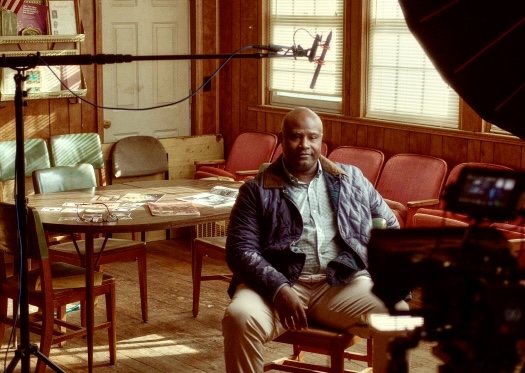From Segregation to Celebration: The Lincoln School Project's Journey of Rediscovery
WEST PLAINS, MO / ACCESSWIRE / January 26, 2024 / In a nation grappling with its complex history and the unsettling erasure of marginalized voices, the restoration and preservation of black historic sites has emerged as a powerful tool for education, healing, and community building.
These sites stand as tangible reminders of the struggles, triumphs, and invaluable contributions of African Americans throughout history. Shockingly, The Washington Post reports that black history is not taught in its entirety in some states, underscoring the urgent need to reclaim and revitalize these spaces. By doing so, we have the opportunity to unearth hidden narratives, bridge educational gaps, and foster a deeper understanding of our shared past.
The Lincoln School Project in West Plains, Missouri, stands as a testament to the transformative potential of these initiatives. By breathing new life into the once-segregated Lincoln School, not only is there restoration of the building itself, but there is also a rejuvenation of the spirit and culture of the West Plains community.
In an interview in Veranda Magazine, Brent Leggs, executive director of the African American Cultural Heritage Action Fund, asserts that preserving black historic sites can help bridge the education gap. Safeguarding tangible reminders of our shared history provides essential platforms for learning and dialogue.
The Lincoln School restoration project serves as a case-in-point. Once a symbol of segregation, the school now stands as a beacon of hope. There are plans to offer educational programs that highlight the stories and struggles of the past. Through these initiatives, communities gain a deeper understanding of the challenges faced by African Americans and the ongoing journey towards equality.

The restoration of the Lincoln School is spearheaded by cultural restoration advocate Crockett W. Oaks III. Oaks recognized the lack of cultural identity, particularly for African Americans, in the region. Motivated by the desire to preserve their heritage, he embarked on a mission to restore cultural institutions like the Lincoln School.
These restoration efforts not only rejuvenate the physical structures but also breathe life into the community's spirit and pride. By reclaiming and celebrating their cultural heritage, communities find a renewed sense of identity, fostering unity and reconciliation.
Preservation initiatives thrive when the community becomes actively engaged. Oaks emphasizes the importance of garnering upfront buy-in and involving stakeholders from diverse backgrounds. By championing the cause and rallying like-minded individuals, a movement can begin to take shape.
The Lincoln School Project goes beyond the physical restoration of a 100-year-old school building; it represents a renewal of community pride. Through engaging programming, the project honors the past while embracing new beginnings and endless possibilities for the future. By telling the stories of Lincoln School in various mediums, from documentaries to interactive exhibits, the project ensures that the diverse narratives of African American history are preserved and shared. This comprehensive approach fosters a sense of collective ownership and respect in the community's heritage.
Preserving black historic sites is an essential endeavor that goes beyond the mere conservation of physical structures. It serves as a catalyst for education, healing, and community unity. By restoring and reimagining once-segregated spaces, we create opportunities for dialogue, understanding, and reconciliation. Through these efforts, we can build a stronger, more inclusive future for our country, one that honors and learns from its past.
ABOUT THE LINCOLN SCHOOL PROJECT
The Lincoln School Project, led by Crockett Oaks III, is revitalizing a century-old, one-room black school from the segregation era in rural Missouri. Associate Vice Chancellor of Missouri State University West Plains, Oaks and The Lincoln School Project are driving a restoration initiative that honors the school's history while steering it toward a promising future. With a distinguished 33-year U.S. Army career as a Colonel and expertise in business and criminal justice administration (holding two master's degrees), Oaks is also spearheading other ambitious cultural restoration projects following the work with The Lincoln School Project - and since 2020 has been sharing insights into the transformative journey. For more information, visit the Lincoln School Project. For additional information, visit the Lincoln School Project on Facebook.
CONTACT:
Crockett Oaks III
[email protected]
281-706-3420
SOURCE: Lincoln School Project




